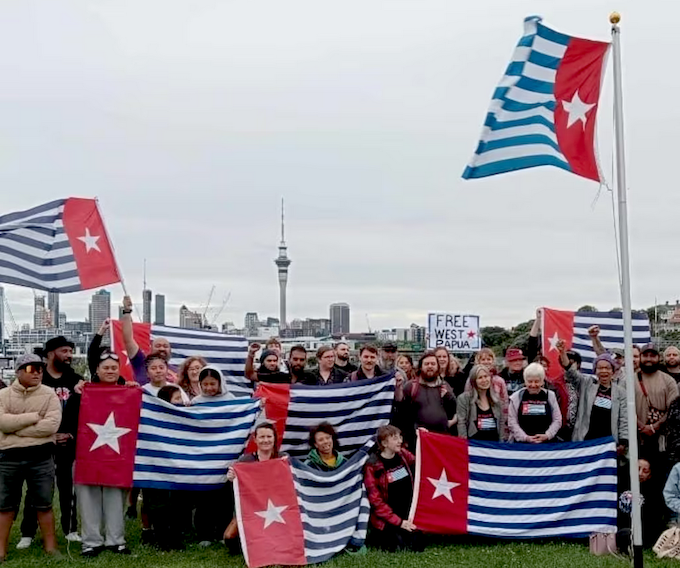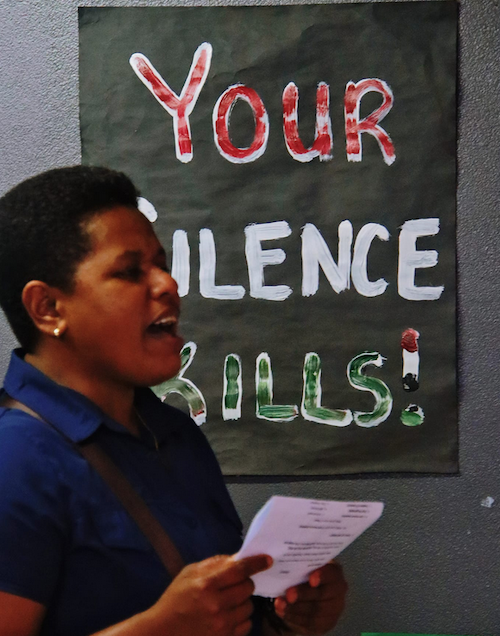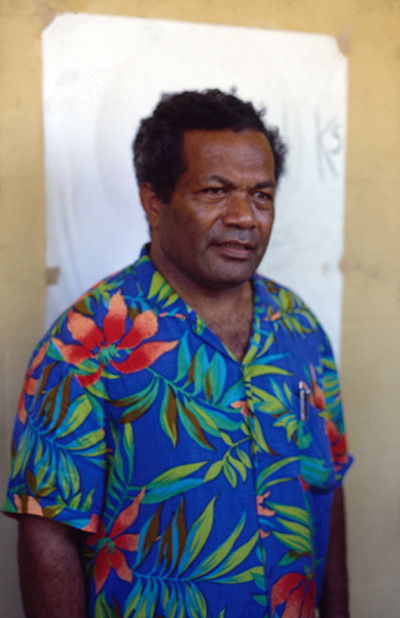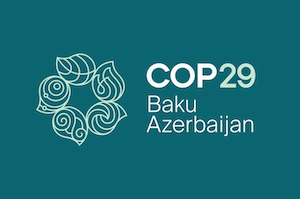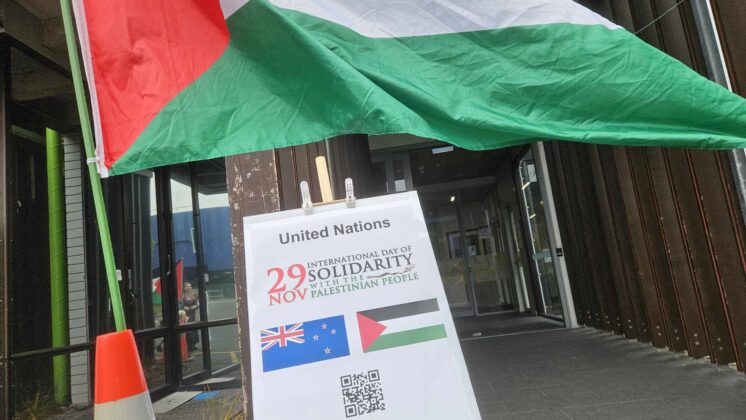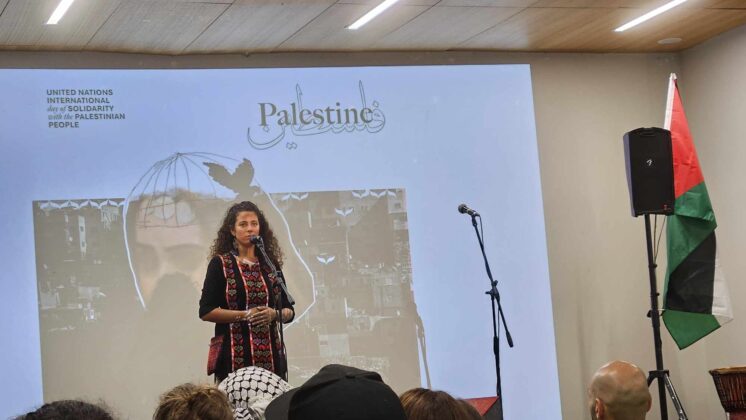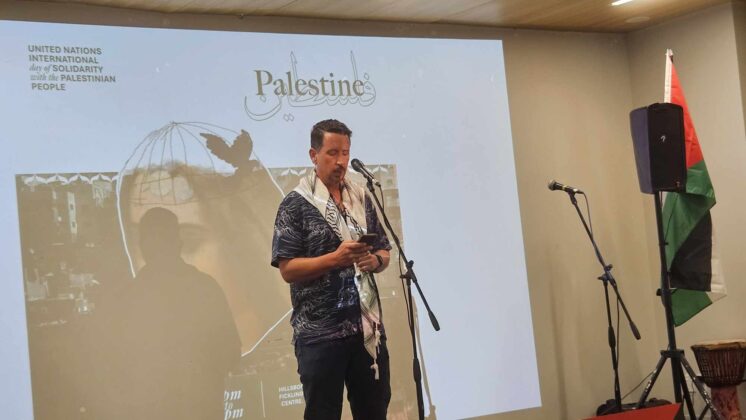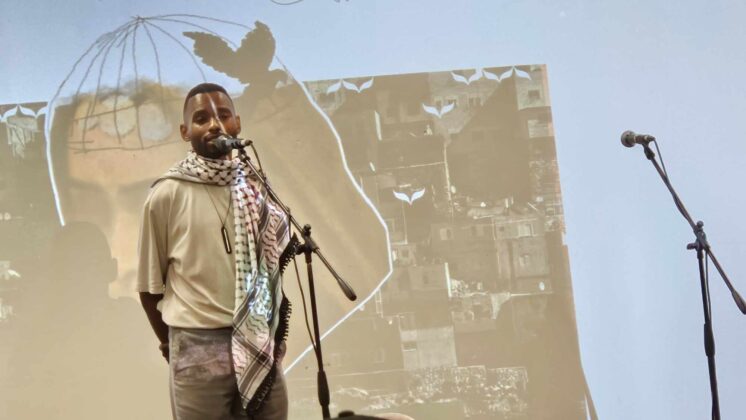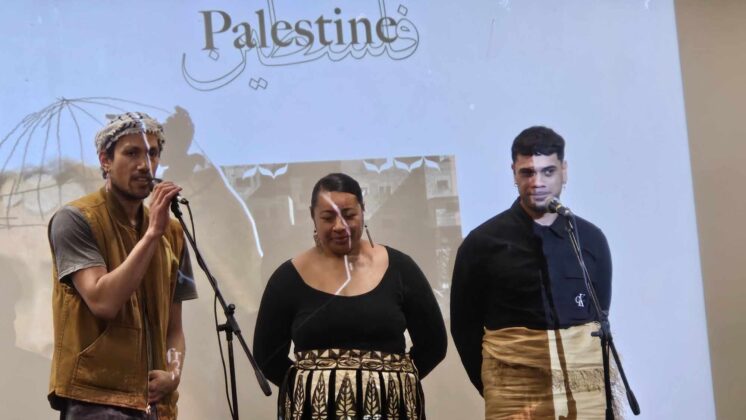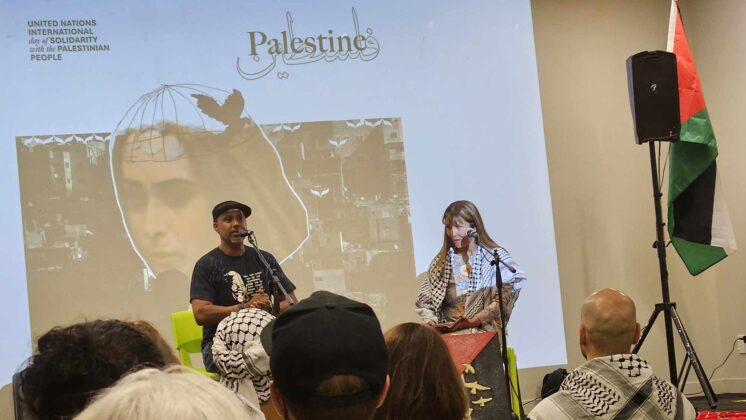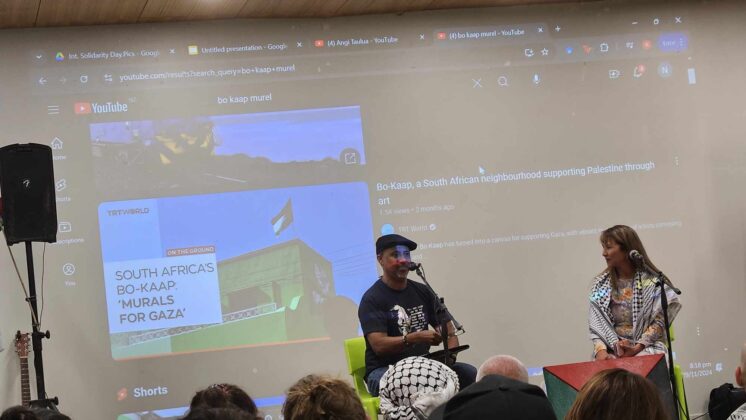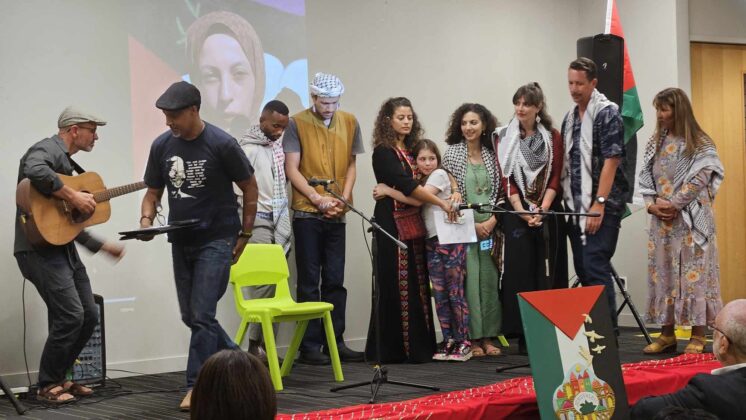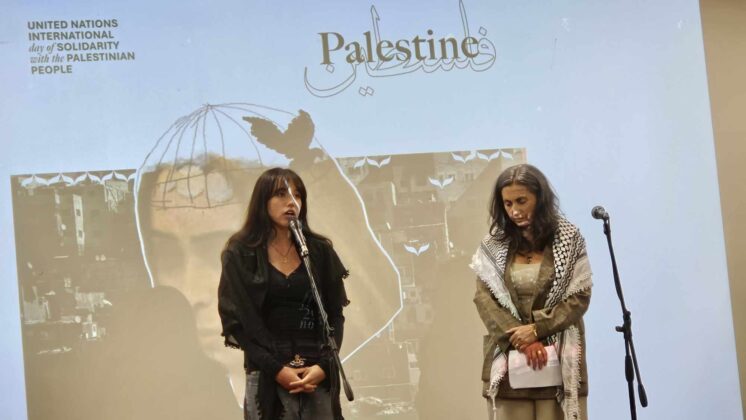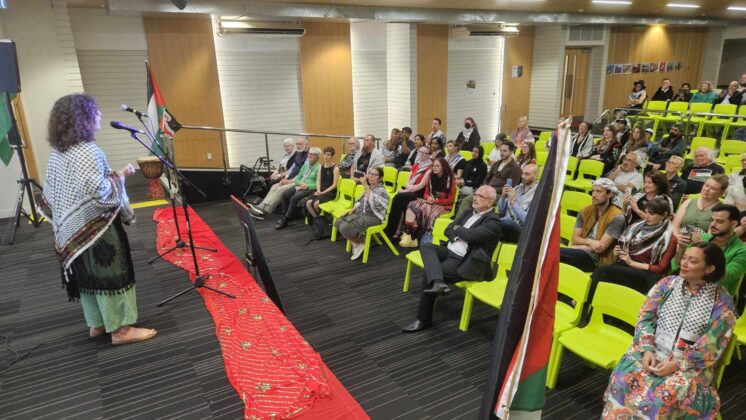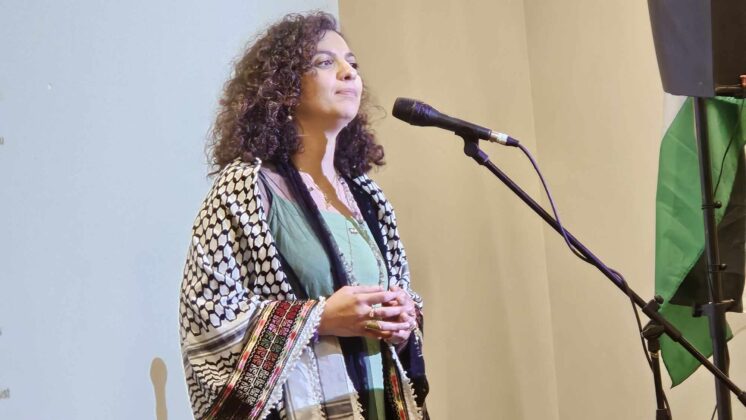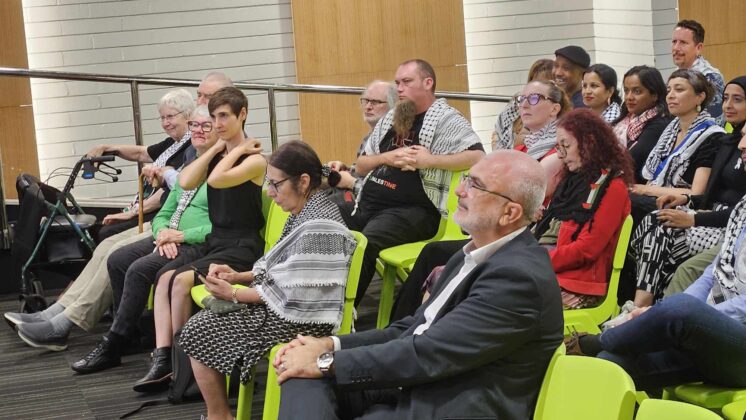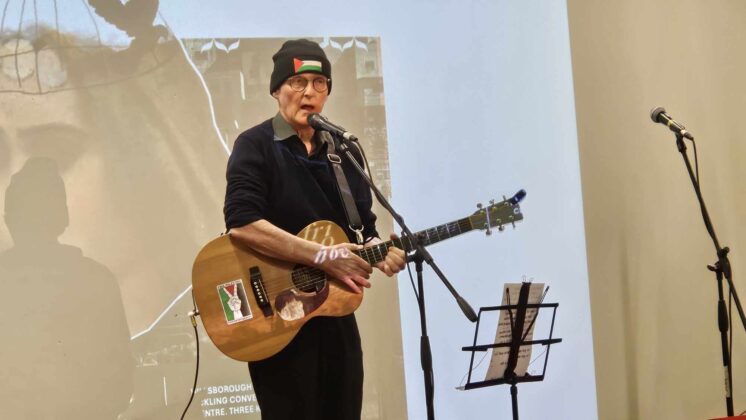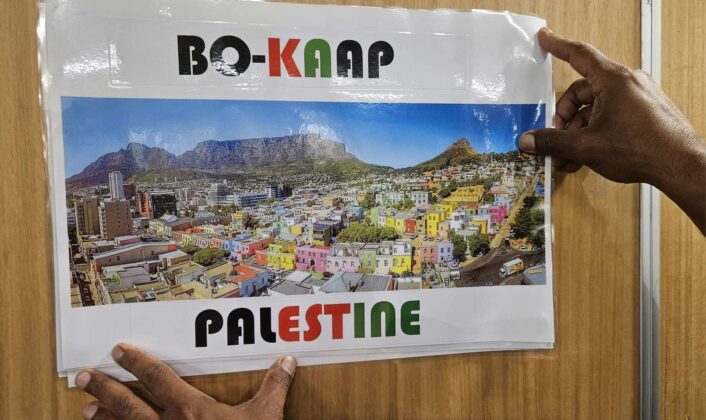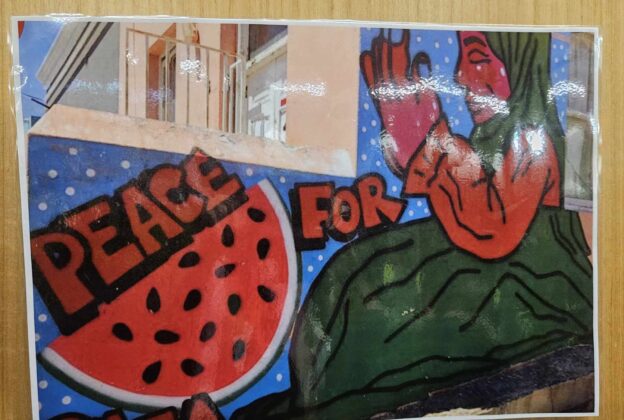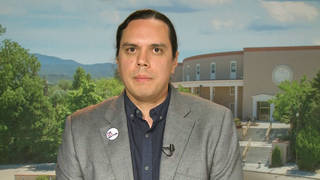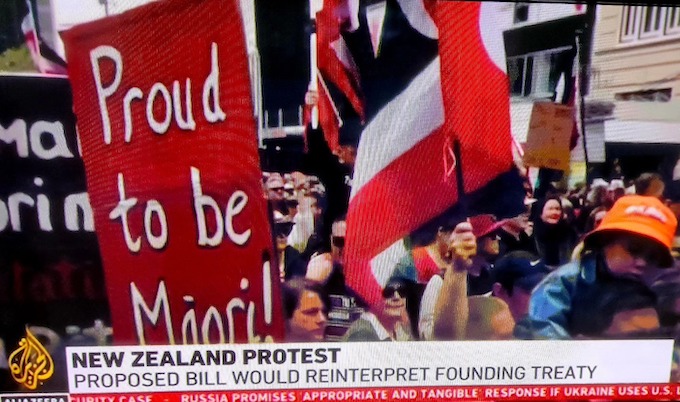Despite it being illegal in Australia to recruit soldiers for foreign armies, the Israeli Defence Forces (IDF) recruiters are hard at work enticing young Australians to join Israel’s army. Michael West Media investigates.
INVESTIGATION: By Yaakov Aharon
The Israeli war machine is in hyperdrive, and it needs new bodies to throw into the fire. In July, The Department of Home Affairs stated that there were only four Australians who had booked flights to Israel and whom it suspected of intending to join the Israel Defence Forces (IDF).
The Australian Border Force intervened with three of the four but clarified that they did not “necessarily prevent them from leaving”.
MWM understands a batch of Australian recruits is due to arrive in Israel in January, and this is not the first batch of recruits to receive assistance as IDF soldiers through this Australian programme.
- READ MORE: Protesters condemn Fiji ‘complicity, silence’ over Israel’s Gaza genocide
- Palestinian musicians, poets and solidarity partners in vibrant NZ cultural celebration
- Other Israel’s war on Gaza reports
Many countries encourage certain categories of immigrants and discourage others. However, Israel doesn’t just want Palestinians out and Jews in — they want Jews of fighting age, who will be conscripted shortly after arrival.
The IDF’s “Lone Soldiers” are soldiers who do not have parents living in Israel. Usually, this means 18-year-old immigrants with basic Hebrew who may never have spent longer than a school camp away from home.
There are a range of Israeli government programmes, charities, and community centres that support the Lone Soldiers’ integration into society prior to basic training.
The most robust of these programs is Garin Tzabar, where there are only 90 days between hugging mum and dad goodbye at Sydney Airport and the drill sergeant belting orders in a foreign language.

Garin Tzabar
In 2004, Prime Minister Ariel Sharon asked Minister for Aliyah [Immigration] and Integration, Tzipi Livni, to significantly increase the number of people in the Garin Tzabar programme.
The IDF website states that Garin Tzabar “is a unique project, a collaborative venture of the Meitav Unit in the IDF, the Scout movement, the security-social wing of the Ministry of Defense and the Ministry of Immigration and Absorption, which began in 1991”. (Translated from Hebrew via Google Translate.)
The Meitav Unit is divided into many different branches, most of which are responsible for overseeing new recruits.
Powerful and unique journalism by @yaakov_aharon on a story that receives shamefully little coverage in Australia; the recruitment of Australians to serve in the Israeli military: https://t.co/OdNVzzMEbx
— Antony Loewenstein (@antloewenstein) December 2, 2024
However, the pride of the Meitav Unit is the branch dedicated to recruiting all the unique population groups that are not subject to the draft (eg. Ultra-Orthodox Jews). This branch is then divided into three further Departments.
In a 2020 interview, the Head of Meitav’s Tzabar Department, Lieutenant Noam Delgo, referred to herself as someone who “recruits olim chadishim (new immigrants).” She stated:
“Our main job in the army is to help Garin Tzabar members to recruit . . . The best thing about Garin Tzabar is the mashakyot (commanders). Every time you wake up in the morning you have two amazing soldiers — really intelligent — with pretty high skills, just managing your whole life, teaching you Hebrew, helping you with all the bureaucratic systems in Israel, getting profiles, seeing doctors and getting those documents, and finishing the whole process.”
The Garin Tzabar programme specifically advertises for Australian recruits.
The contact point for Australian recruits is Shoval Magal, the executive director of Garin Tzabar Australia. The registered address is a building shared by the NSW Jewish Board of Deputies and the Zionist Council of NSW, the community’s peak bodies in the state.
A post from April 2020 on the IDF website states:
“Until three months ago, Tali [REDACTED], from Sydney, Australia, and Moises [REDACTED], from Mexico City, were ordinary teenagers. But on December 25, they arrived at their new family here in Israel — the “Garin Tzabar” family, and in a moment, they will become soldiers. In a special project, we accompanied them from the day of admission (to the program) until just before the recruitment.“ (Translated from Hebrew via Google Translate).
Michael Manhaim was the executive director of Garin Tzabar Australia from 2018 to 2023. He wrote an article, “Becoming a Lone Soldier”,’ for the 2021 annual newsletter of Betar Australia, a Zionist youth group for children. In the article, Manhaim writes:
“The programme starts with the unique preparation process in Australia.
. . . It only takes one step; you just need to choose which foot will lead the way. We will be there for the rest.”
A criminal activity
MWM is not alleging that any of the parties mentioned in this article have broken the law. It is not a crime if a person chooses to join a foreign army.
However, S119.7 of the Commonwealth Criminal Code Act 1995 states:
A person commits an offence if the person recruits, in Australia, another person to serve in any capacity in or with an armed force in a foreign country.
It is a further offence to facilitate or promote recruitment for a foreign army and to publish recruitment materials. This includes advertising information relating to how a person may serve in a foreign army.
The maximum penalty for each offence is 10 years.
Rawan Arraf, executive director of the Australian Centre for International Justice, said:
“Unless there has been a specific declaration stating it is not an offence to recruit for the Israel Defence Force, recruitment to a foreign armed force is a criminal offence under Australian law, and the Australian Federal Police should be investigating anyone allegedly involved in recruitment for a foreign armed force.”
Army needing ‘new flesh’
If the IDF are to keep the war on Gaza going, they need to fill old suits of body armour with new grunts.
Reports indicate the death toll within IDF’s ranks is unprecedented — a suicide epidemic is claiming further lives on the home front, and reservists are refusing in droves to return to active duty.
In October, Israeli opposition leader Yair Lapid accused Bibi Netanyahu of obscuring the facts of Israel’s casualty rate. Any national security story published in Israel must first be approved by the intelligence unit at the Military Censor.
“11,000 soldiers were injured and 890 others killed,” Lapid said, without warning and live on air. There are limits to how much we accept the alternative facts”.
In November 2023, Shoval Magal shared a photo in which she is posing alongside six young Australians, saying, “The participants are eager to have Aliya (immigrate) to Israel, start the programme and join the army”.
These six recruits are the attendees of just one of several seminars that Magal has organised in Melbourne for the summer 2023 cycle, having also organised separate events across cities in Australia.
Magal’s June 2024 newsletter said she was “in the advanced stages of the preparation phase in Australia for the August 2024 Garin”. Most recently, in October 2024, she was “getting ready for Garin Tzabar’s 2024 December cycle.”

There are five “Aliyah (Immigration) Events” in Sydney, Melbourne and Perth. The sponsoring organisations are Garin Tzabar, the Israeli Ministry for Aliyah (Immigration) and Integration, and a who’s who of the Jewish-Australian community.
The star speaker at each event is Alon Katz, an Australian who joined Garin Tzabar in 2018 and is today a reserve IDF soldier. The second speaker, Colonel Golan Vach, was the subject of two Electronic Intifada investigations alleging that he had invented the 40 burned babies lie on October 7 to create a motive for Israel’s onslaught in Gaza.
If any Australian signed the papers to become an IDF recruit at these events, is someone liable for the offence of recruiting them to a foreign army?
MWM reached out for comment to Garin Tzabar Australia and the Zionist Federation of Australia to clarify whether the IDF is recruiting in Australia but did not receive a reply.
Yaakov Aharon is a Jewish-Australian journalist living in Wollongong. He enjoys long walks on Wollongong Beach, unimpeded by Port Kembla smoke fumes and AUKUS submarines. First published by Michael West Media and republished with permission.
This content originally appeared on Asia Pacific Report and was authored by APR editor.
This post was originally published on Radio Free.
